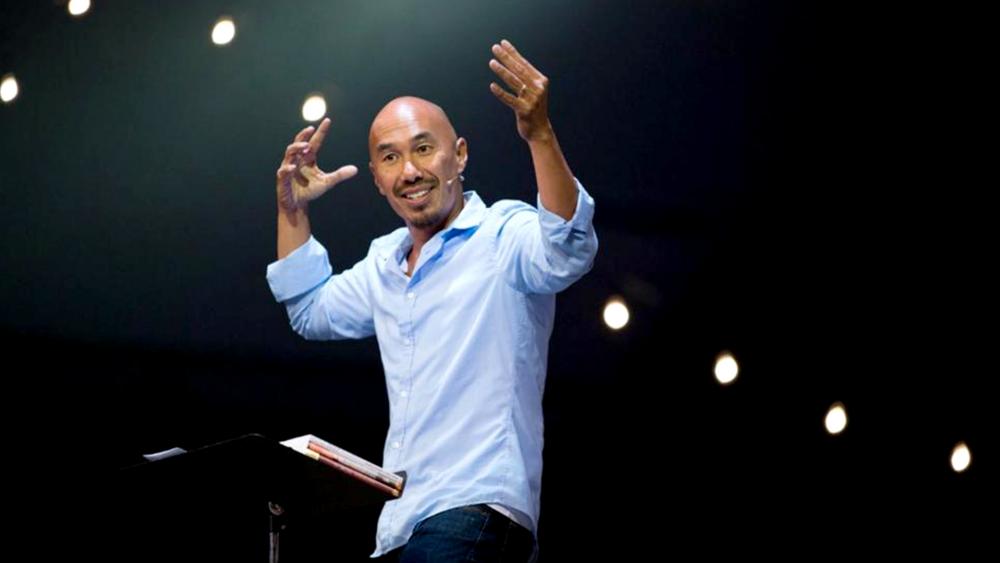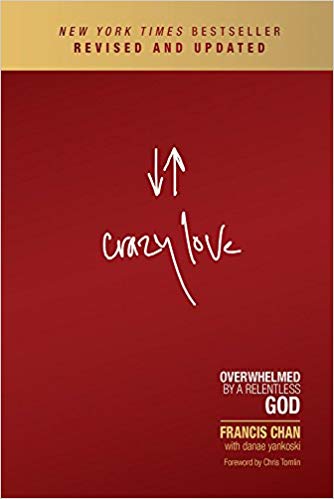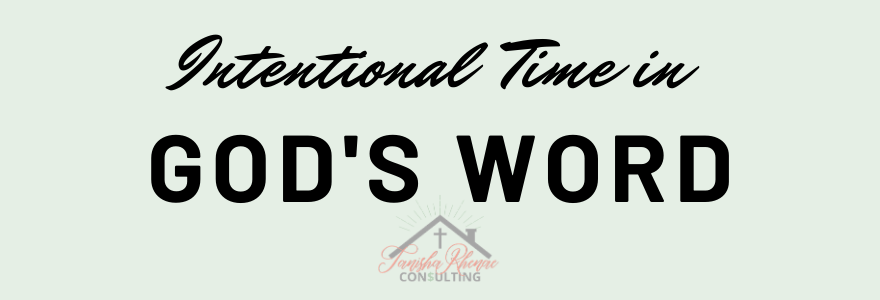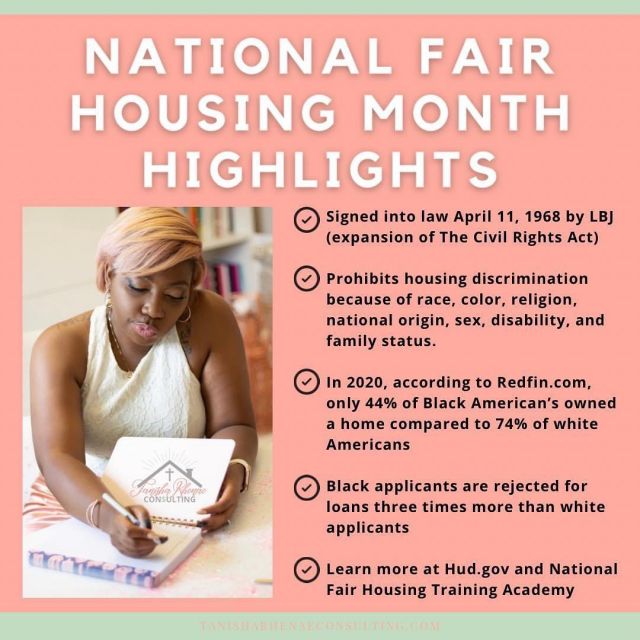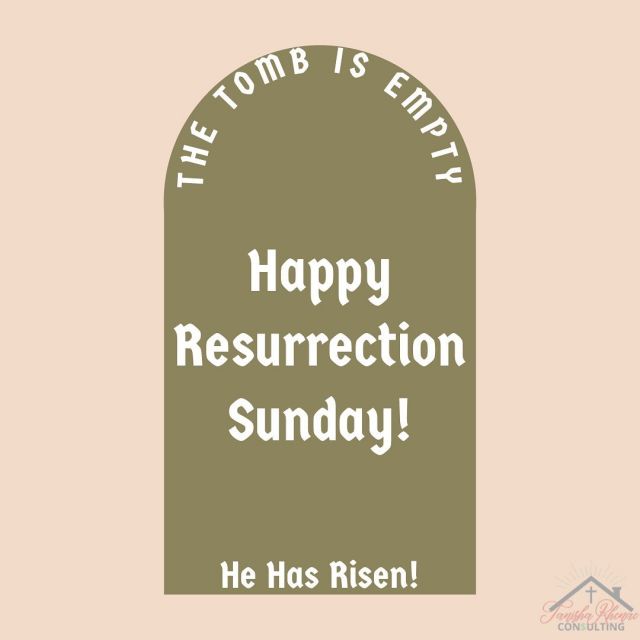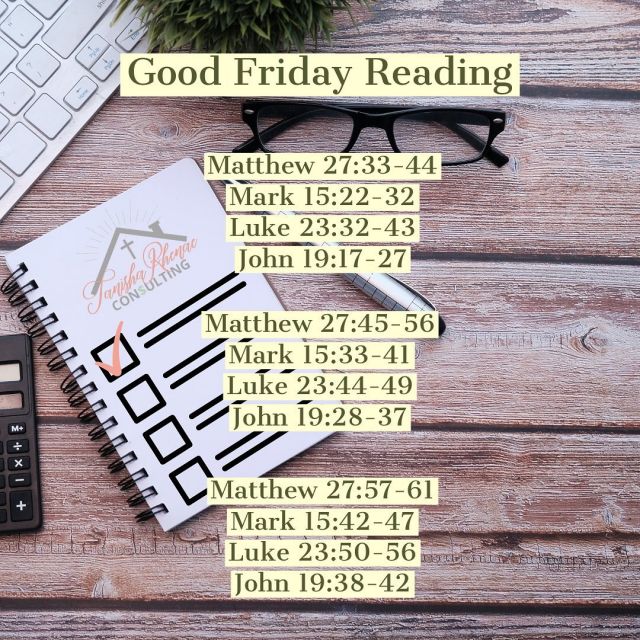Title: You And Me Forever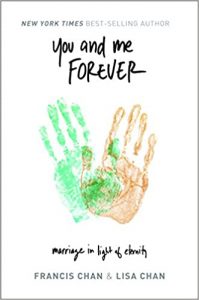
Author: Francis and Lisa Chan
Genre: Christian/Marriage
Publisher: Claire Love Publishing
Rating: ⭐️⭐️⭐️⭐️
I love Francis Chan books. I even have one of them in my top 5 list of all time. And while this book was a great read, I couldn’t give it five stars because this marriage book wasn’t really about marriage. I mean, the book talked about marriage, and it spoke of parenthood, but overall the book was about your relationship with God and how we should focus on the mission of Jesus to go and make disciples. So when you think of the book in light of that, it was a solid 4-star read.
My Thoughts
I’ve had this book on my list and in my Apple Books library for a while now. When I was on a Francis Chan binge a year or two ago, I had plans to read it, but then I was ready for something else. So when my church had a Wives After God small group, and they were reading this book, I signed up. We did one chapter a week, and usually, that is too slow for me and why I typically fail at book club-type groups. But because this season was a tad bit busy for me and I wanted to do a better job resting, it was actually what I needed.
So the big issue with the book. The fact that it is supposed to be a marriage book. If you are expecting step-by-step guidance on how to have a better marriage, communicate better, etc., this isn’t the book for you. Instead, you have seven short chapters that focus on why marriage (and all the things that come with that, like parenting) aren’t about you and your spouse at all. Everything is about God, the command to make disciples, and remembering that our home is in heaven.

The book starts by explaining that our home is in heaven and how we should keep eternity instead of our temporary homes and relationships in the forefront of our minds. And by doing that and following God’s Word, you will have a good life and marriage almost by default. Not trouble-free, since we aren’t promised that. Chan’s thoughts are that if we focus on doing all we can to get into heaven, get others into heaven, and storing up our treasures for heaven, our marriages will work themselves out if both spouses have the same mindset. It leaves little room for fighting and misunderstandings.
And that is what the book is about. It’s about first making sure that you have your salvation worked out. Cause let’s be serious, if you aren’t going to be in heaven with Jesus, there isn’t a point to talk about anything else. But once you are saved, the Chan’s then focus on working out your salvation daily with sanctification and fearing God. What are you praying about? What order are the priorities in your life? Are you reading God’s Word? Are you taking action on what you are reading? And when you think about what the Bible says about marriage, it starts to make sense. First, Jesus tells us we won’t be married in heaven. Then Paul tells us it’s better to be single so you can focus just on God. And then most of what we hear about marriage after that is about the marriage of the bride (the Church) and the bridegroom (Jesus). The Bible talks about that union, what it will look like, and how we are to prepare for it. But if you are like me, your earthly marriage probably doesn’t have anything to do with heaven.
So the first four chapters are really about how to individually and together as a couple get connected to God, live out the mission of Christ, and focus on your time in heaven. You get some pointers on how to do that, and along with Chapter 5, you focus on what the reward looks like when you do all of that. Then Chapter 6 talks about parenting. But again, not in light of marriage. But basically, what you need to do to show your kids that you are following Christ as a couple instead of just telling them they should follow Christ. Then a nice conclusion ties it all up, telling you to continue the good fight.
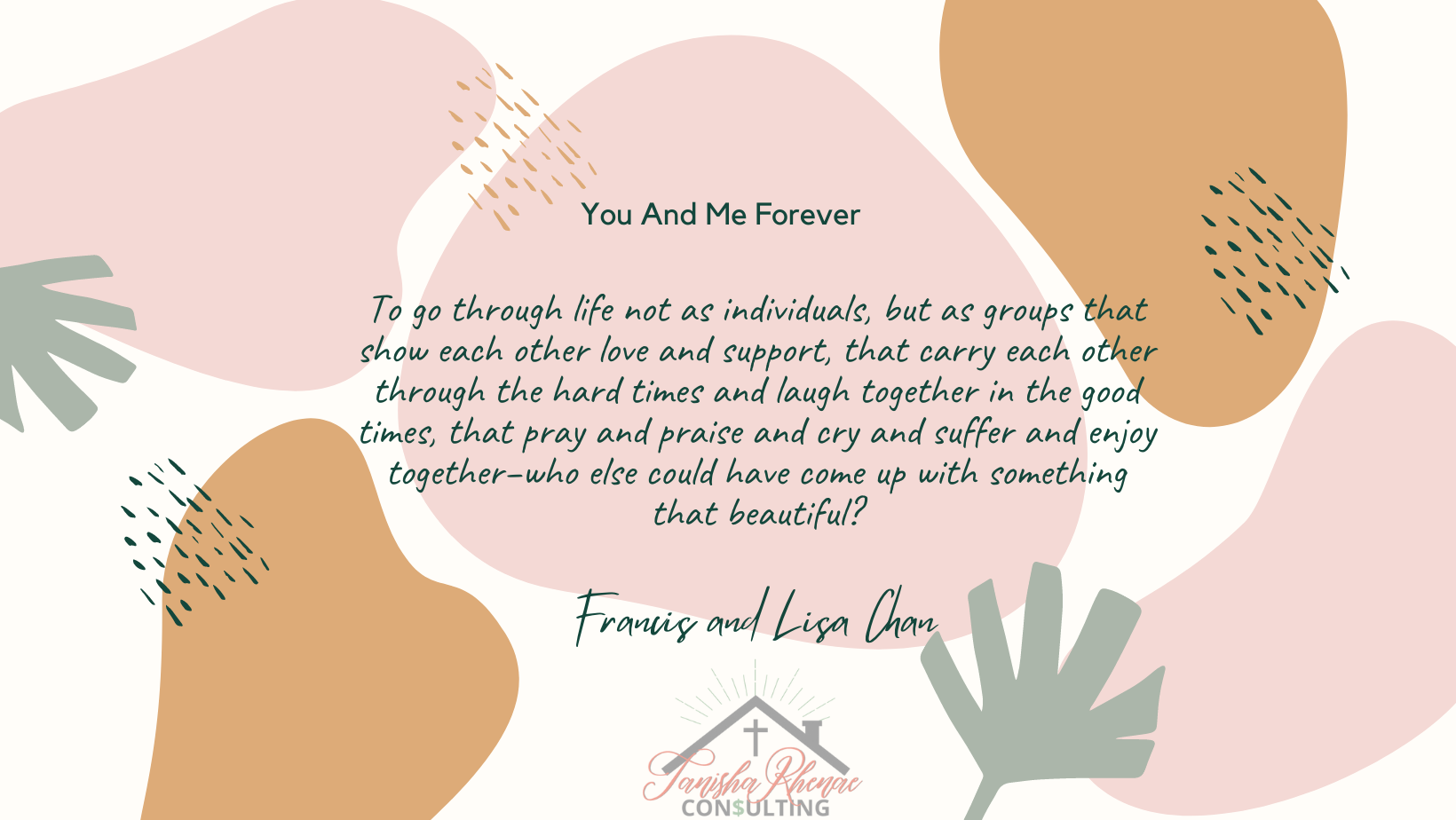
The book itself is interactive. Each chapter is mainly written from Francis Chan’s voice. Then there is a section that is specifically from Lisa, followed by a conclusion. Then there is a do something aspect for each chapter. This section is filled with ideas on what you can do with your spouse to ensure you are living out what the chapter taught you. There are also plenty of discussion topics as well. You have the option to buy the accompanying study guide with the book (I did but honestly didn’t finish it). And there are also videos to go along with each chapter from the Chan’s. But here is the best part. You can read this book for free. If you go to www.youandmeforever.com, you can download the eBook for free! It’s a gift to your marriage from the Chan’s.
So while this wasn’t my favorite book by Francis Chan, and I was a bit thrown off about it not being a marriage book, it was still a solid read regarding what our focus should be daily. This book made me realize that I don’t spend time thinking about eternity, let alone making all my decisions in light of it. In my morning prayer time with God, I decided to try and ask Him daily to allow me to impact eternity today. I will also schedule a sit-down with the hubby and see how our family values can align with God’s mission of saving souls and making disciples.

*As an Amazon Associate I earn from qualifying purchases.

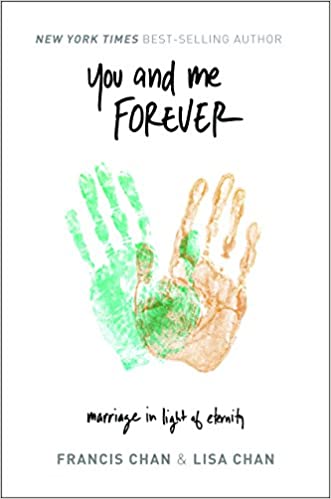









 1.
1. 
 3.
3.  4.
4.  5.
5.  6.
6.  7.
7.  8.
8.  9.
9. 
 11.
11.  12.
12.  13.
13. 
 15.
15.  16.
16.  17.
17.  18.
18.  19.
19.  20.
20. 
 Title:
Title: 

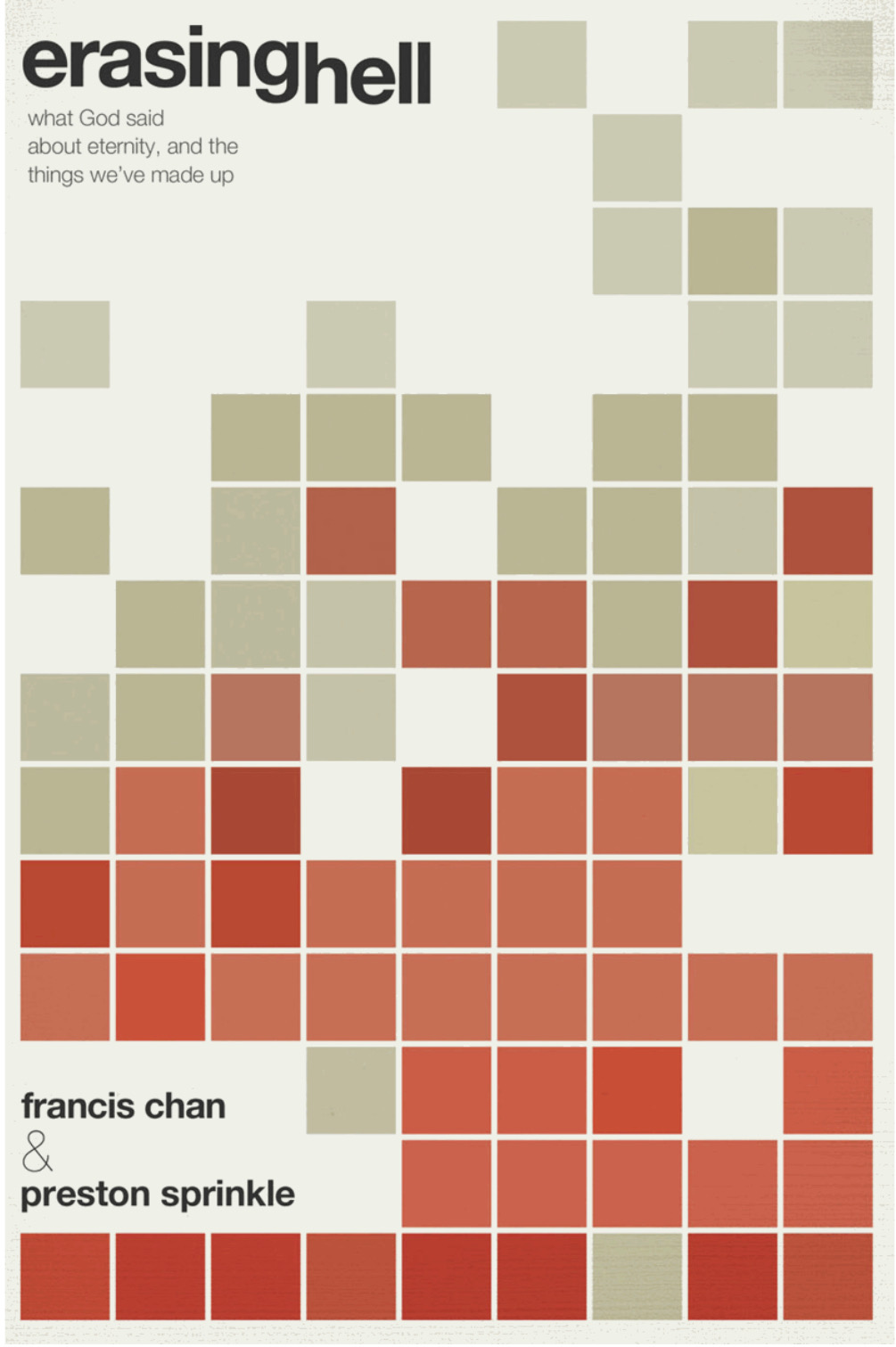
 This is book 3 out of 4 from
This is book 3 out of 4 from 
